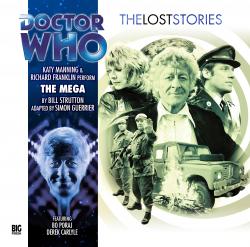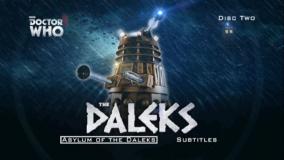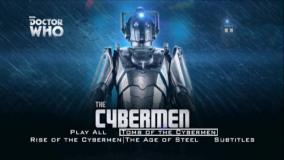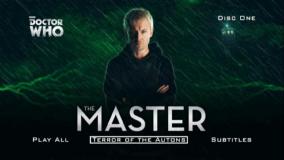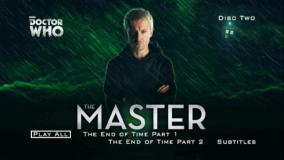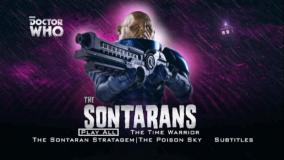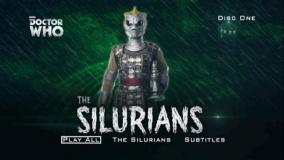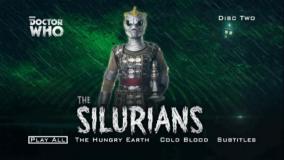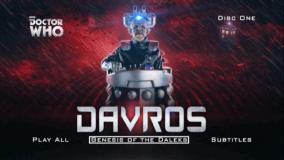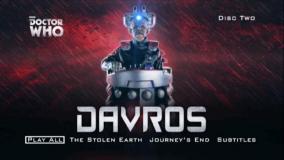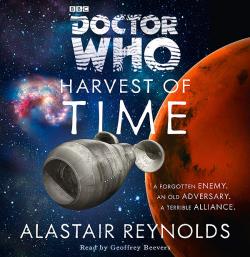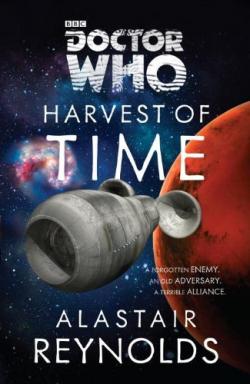
Harvest of Time
Written by Alastair Reynolds
BBC Books
Published
June 2013 (UK)Alastair Reynolds is clearly a fan of the Jon Pertwee era, because this novel does a wonderful job of remembering the atmosphere and flavour of classic UNIT stories. The focus on Scottish oil rigs and mysterious marine happenings also feels reminiscent of
Terror of the Zygons, whilst Reynolds’ choice of oil company – McCrimmon Industries – neatly suggests the second Doctor’s tenure, offering a canny hybrid of 60s and 70s
Doctor Who. At the same time, Reynolds’ focus on the Master – given a more significant role here than in almost any other
Who adventure – also involves a couple of smartly implied references to his most recent (John Simm) incarnation, making this something of an eye-opener for all those interested in Time Lord mythology. However, the superiority of the Delgado Master is reinforced:
Harvest of Time suggests that the version of the Master faced by the third Doctor must have been the most deadly and the most powerful of all his incarnations.
As might be expected from a writer of Reynolds’ calibre, this is a compelling space opera version of
Doctor Who (it’s not really hard SF, however; that would undoubtedly feel out of kilter with the third Doctor’s era of lash-ups, alien action, and gallivanting around the Home Counties). Incidents that would have been impossible to realize on-screen in the 1970s are given freer imaginative rein, along with one scene of carnage and gore which would never have been sanctioned as teatime viewing. Unrestricted by matters of budget or CSO, Reynolds creates an unusual and thrilling alien invasion force in the shape of the Sild. These metallic crab machines are each piloted by a tiny seahorse-like entity, and far from being an all-powerful presence individual Sild can very easily be dealt with. Their true threat emerges through force of numbers, along with their ability to possess human and animal hosts (and a sequence where the Sild use Friesian cows to impede UNIT’s progress is truly chilling).
Harvest of Time avoids merely being a nostalgic return to characters such as Yates, Benton and the Brigadier by combining its note-perfect realization of the UNIT family with some surprising and innovative plot developments. Memory also becomes a key theme and story motor, very appropriately for a novel which so clearly summons up its author's youthful memories of
Doctor Who. It's sometimes tempting to suppose that the Doctor-Master relationship has been so well explored that there’s nowhere new to take things, but Reynolds displays vertiginous invention, re-shaping the Master into an unexpected level and scale of threat. Certain aspects of the back story revealed here do feel slightly familiar, but overall this novel offers a freshness of approach, and such an audacious, logical and energizing time travel idea that it’s shocking to think that televised
Who has never quite attempted this particular gambit.
Reynolds also has fun with the dynamic between the Doctor and the Master, using small details to cleverly articulate their rivalry, such as the Master refusing to accept that the Doctor is taller than him, or the Doctor not wanting to accept the Master’s superior abilities in temporal science. Indeed, the Master almost becomes a sort of companion to the Doctor at one point (or vice versa), as the novel is split into two main plotlines: one focusing on the Doctor and the Master travelling to an alien world, Praxilion, and the other tackling UNIT’s endeavours to repel the Sild invasion of Earth. Reynolds threads these settings together with aplomb, and the enigmatic Red Queen of Praxilion takes on a greater role in defeating the Sild than might have been anticipated.
There are a number of beautiful, stand-out scenes scattered across this novel. At one point, junior members of UNIT grumble about their task to transport the TARDIS on the back of a lorry, giving readers a wonderful insight into the prosaic day-to-day operations that must underpin the Doctor’s adventures. Ordinary life suddenly runs up against the extraordinary exploits of UNIT, reframing both in refreshing ways. And another stunning scene involves the Master begging the Doctor to help him overcome his evil ways and ‘go straight’… a request which doesn’t quite play out in the way one might imagine.
Amongst all of Reynolds’ brilliant inventiveness, there is also the matter of exactly what the “harvest of time” refers to. The answer, when it comes, is a jaw-dropping realization, and something which greatly deepens and enriches this novel. Although
Harvest offers plenty of on-the-money, gung-ho UNIT action, it also carries moments of terrifying darkness, and the monstrous Sild are not the only challenge that the Doctor and the Master must confront.
Meanwhile, McCrimmon Industries is given a human face via one Eddie McCrimmon, and Reynolds subjects this character to a number of transformative experiences. At one point, Eddie matter-of-factly discusses crab monsters via written messages displayed through a window, and rather than tipping the whole alien invasion storyline into absurdity, this adroitly emphasizes the tenacity of the human spirit. Eddie constantly rises to the challenges thrown at McCrimmon Industries, wearing the family name very well indeed.
This is such a satisfying, creative take on classic
Who I very much hope Alastair Reynolds is invited back to write another adventure for the Doctor, Josephine Grant and UNIT before too long. It would be particularly fascinating to see what a science fiction writer of Reynolds' standing would make of the Daleks, for instance... And if this is Reynolds’
Doctor Who “Master-piece”, I’d also love to see what he could do with a tale focused more strongly on the Brigadier than usual. It’s common for writers who have made their name through original work to describe working on a franchise as “playing with somebody else’s toys”. But each page of this novel displays a real sense of Alastair Reynolds’ desire to channel the magic of
Doctor Who: this is serious play, and it pays handsome tribute to Roger Delgado, Jon Pertwee, Nicholas Courtney, and all those hailing from an era that’s acutely recreated and astutely re-imagined across these pages.
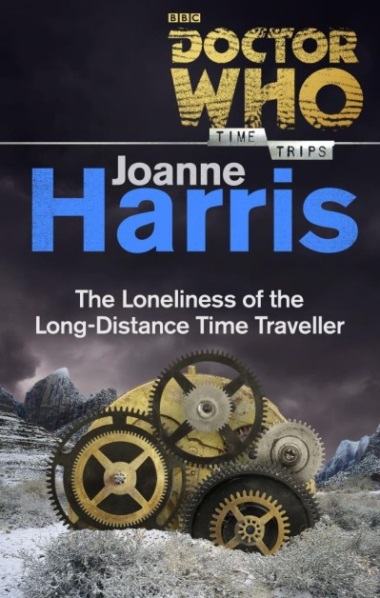 This seventh entry in the Time Trips series of e-books is the work of Joanne Harris, and sees the Third Doctor on the brink of oblivion as he struggles to hold back the deadly radiation he was exposed to on Metebelis Three. The Doctor is the only series regular character to feature, and that is because of his predicament in trying to land back 'home' - i.e. UNIT HQ. After the TARDIS is instead forced down into a Time Paradox ensnared village, with a 'Groundhog Day' style routine questions abound. But soon it is clear that the Doctor must somehow save the day once again - despite his very weak condition.
This seventh entry in the Time Trips series of e-books is the work of Joanne Harris, and sees the Third Doctor on the brink of oblivion as he struggles to hold back the deadly radiation he was exposed to on Metebelis Three. The Doctor is the only series regular character to feature, and that is because of his predicament in trying to land back 'home' - i.e. UNIT HQ. After the TARDIS is instead forced down into a Time Paradox ensnared village, with a 'Groundhog Day' style routine questions abound. But soon it is clear that the Doctor must somehow save the day once again - despite his very weak condition. 